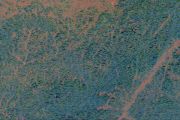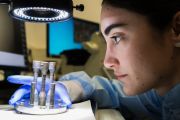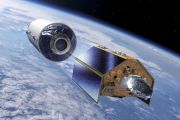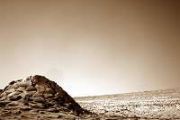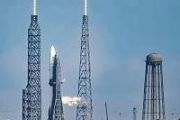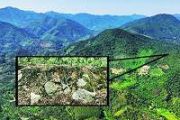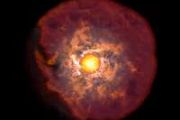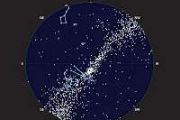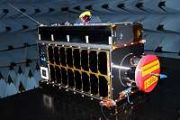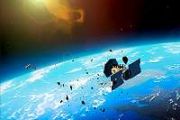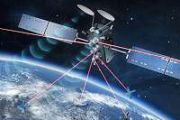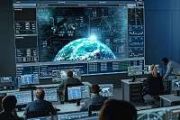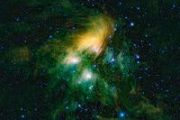
Copernical Team
Rogue Space Systems lands inaugural on-orbit service contract
 Rogue Space Systems Corporation, a prominent player in the field of space situational awareness and satellite servicing, has achieved a significant milestone by securing its first on-orbit service contract. While the specifics of the contract and the identity of the commercial constellation owner/operator involved remain confidential, this development marks a noteworthy step forward for the comp
Rogue Space Systems Corporation, a prominent player in the field of space situational awareness and satellite servicing, has achieved a significant milestone by securing its first on-orbit service contract. While the specifics of the contract and the identity of the commercial constellation owner/operator involved remain confidential, this development marks a noteworthy step forward for the comp Ovzon's Rights Issue Fully Subscribed, Securing SEK 250 Million for Strategic Expansion
 Ovzon AB, a prominent player in the European satcom industry, has announced the successful outcome of its recent rights issue of shares. The subscription period for this significant event concluded on December 6, 2023, and the results are impressive. The Rights Issue has been oversubscribed, with strong support from existing shareholders and new investors.
In this report, we will delve int
Ovzon AB, a prominent player in the European satcom industry, has announced the successful outcome of its recent rights issue of shares. The subscription period for this significant event concluded on December 6, 2023, and the results are impressive. The Rights Issue has been oversubscribed, with strong support from existing shareholders and new investors.
In this report, we will delve int China Unveils World's Deepest Underground Lab for Dark Matter Research
 A groundbreaking underground laboratory has commenced operations in Southwest China's Sichuan province. The Deep Underground and Ultra-low Radiation Background Facility for Frontier Physics Experiments (DURF) is set to become a hub for cutting-edge scientific investigations, particularly in the pursuit of understanding dark matter.
This major facility, located beneath Jinping Mountain in S
A groundbreaking underground laboratory has commenced operations in Southwest China's Sichuan province. The Deep Underground and Ultra-low Radiation Background Facility for Frontier Physics Experiments (DURF) is set to become a hub for cutting-edge scientific investigations, particularly in the pursuit of understanding dark matter.
This major facility, located beneath Jinping Mountain in S First hints of nuclear fission in cosmos revealed by models, observations
 The elements above iron on the periodic table are thought to be created in cataclysmic explosions like the merger of two neutron stars or in rare classes of supernovae. New research suggests fission may operate in the cosmos during the creation of the heavy elements. Combing through data on a variety of elements that reside in very old stars, researchers have found a potential signature of fissi
The elements above iron on the periodic table are thought to be created in cataclysmic explosions like the merger of two neutron stars or in rare classes of supernovae. New research suggests fission may operate in the cosmos during the creation of the heavy elements. Combing through data on a variety of elements that reside in very old stars, researchers have found a potential signature of fissi Ancient stars made extraordinarily heavy elements
 How heavy can an element be? An international team of researchers has found that ancient stars were capable of producing elements with atomic masses greater than 260, heavier than any element on the periodic table found naturally on Earth. The finding deepens our understanding of element formation in stars.
We are, literally, made of star stuff. Stars are element factories, where elements
How heavy can an element be? An international team of researchers has found that ancient stars were capable of producing elements with atomic masses greater than 260, heavier than any element on the periodic table found naturally on Earth. The finding deepens our understanding of element formation in stars.
We are, literally, made of star stuff. Stars are element factories, where elements Researchers Develop Advanced Algorithm Pandora for Exomoon Hunt
 In the vast cosmos, where planets orbit distant stars, the existence of moons around exoplanets has been a topic of intrigue. Only two of the more than 5300 known exoplanets have so far provided evidence of moons in orbit around them, and these findings were associated with exoplanets Kepler-1625b and Kepler-1708b. However, a recent study conducted by scientists from the Max Planck Institute for
In the vast cosmos, where planets orbit distant stars, the existence of moons around exoplanets has been a topic of intrigue. Only two of the more than 5300 known exoplanets have so far provided evidence of moons in orbit around them, and these findings were associated with exoplanets Kepler-1625b and Kepler-1708b. However, a recent study conducted by scientists from the Max Planck Institute for A Great Year for the Geminids
 It's December and that means one of the best celestial events will grace the skies. The Geminid meteor shower should peak in a moonless sky between Wednesday and Thursday, December 13-14.
On Wednesday night, December 13th, and continuing into the early hours of Thursday, December 14th, be sure to head outside and look up - you may very well see brief streaks of light crossing the sky from
It's December and that means one of the best celestial events will grace the skies. The Geminid meteor shower should peak in a moonless sky between Wednesday and Thursday, December 13-14.
On Wednesday night, December 13th, and continuing into the early hours of Thursday, December 14th, be sure to head outside and look up - you may very well see brief streaks of light crossing the sky from On The Road Again: Sols 4030-4031
 Earth planning date: Wednesday, December 6, 2023: We arrived at our previous drill site 'Sequoia' in mid-October. Since then we've celebrated 4000 Sols on Mars, and stayed here for a few extra weeks during conjunction. But finally, Curiosity is on the move once again!
Previously, we drove ~5 m and today's planning involved picking the most interesting rocks in the new workspace to target w
Earth planning date: Wednesday, December 6, 2023: We arrived at our previous drill site 'Sequoia' in mid-October. Since then we've celebrated 4000 Sols on Mars, and stayed here for a few extra weeks during conjunction. But finally, Curiosity is on the move once again!
Previously, we drove ~5 m and today's planning involved picking the most interesting rocks in the new workspace to target w KAIST Partners with Rocket Lab for NeonSat-1 Launch
 Rocket Lab USA, Inc. (Nasdaq: RKLB) has secured a launch services agreement that will see the deployment of the Korea Advanced Institute of Science and Technology's (KAIST) Earth observation satellite, NeonSat-1. This exciting development is set to take place during the first half of 2024, adding to Rocket Lab's increasingly busy manifest of Electron missions.
KAIST's NeonSat-1 will serve
Rocket Lab USA, Inc. (Nasdaq: RKLB) has secured a launch services agreement that will see the deployment of the Korea Advanced Institute of Science and Technology's (KAIST) Earth observation satellite, NeonSat-1. This exciting development is set to take place during the first half of 2024, adding to Rocket Lab's increasingly busy manifest of Electron missions.
KAIST's NeonSat-1 will serve 
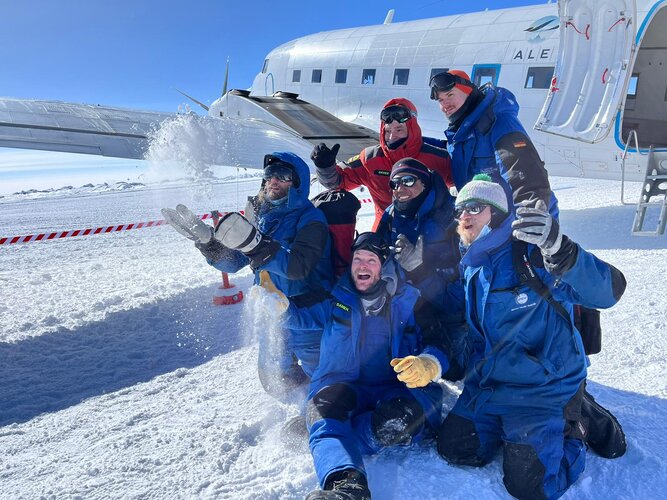 Image:
The last members of the European Antarctic crew DC19 say goodbye to Concordia after spending a year at the research station in Antarctica
Image:
The last members of the European Antarctic crew DC19 say goodbye to Concordia after spending a year at the research station in Antarctica 










